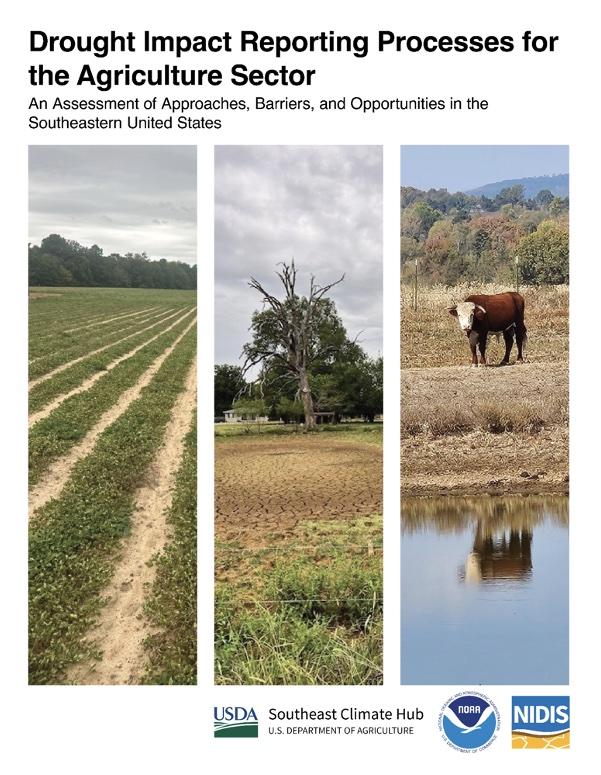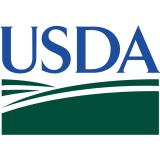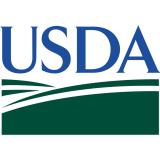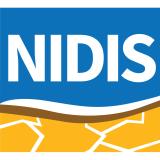Drought Impact Reporting Processes for the Agricultural Sector: An Assessment of Different Approaches, Barriers, and Opportunities in the Southeastern United States
Despite the water-rich nature of the southeastern U.S., extended and intense dry periods intermittently occur across the region leading to reduced soil moisture levels and surface water supplies. These drought periods affect the landscape at different scales, with agriculture experiencing impacts earlier than other sectors
The U.S. Department of Agriculture (USDA) Southeast Climate Hub collaborated with the NOAA National Integrated Drought Information System (NIDIS) Southeast Drought Early Warning System (DEWS) on a joint assessment of how Southeastern states record, report, and utilize information about drought impacts on agriculture. This assessment, conducted via interviews in 2021-2022 with federal and state entities, focused on the following:
- Understand state-specific approaches and methods involving drought impact reports
- Identify various barriers associated with the collection and utilization of drought impact reports in each state’s process
- Highlight practices and approaches that have successfully improved the incorporation and use of these reports
- Identify opportunities for improving the utilization and effectiveness of impact reports.
This assessment highlights effective practices implemented across the Southeast to share lessons learned. It also identifies existing barriers and opportunities states can use to improve collection and use of drought impact reporting in state drought processes. The effective practices highlighted in this document are a blueprint to further strengthen agriculture-based impact reporting by working collaboratively with extension, USDA offices, and state drought monitoring efforts. It can also inform future state drought monitoring and planning efforts, local extension services, the Southeast DEWS network, and the USDA Climate Hub network.
For more information, view the research profile for this effort, or contact Meredith Muth.






